Latest
2024
Dec
Nov
Oct
Sep
Aug
Jul
Jun
May
Apr
Mar
Feb
Jan
2023
Dec
Nov
Oct
Sep
Aug
Jul
Jun
May
Apr
Mar
Feb
Jan
2022
Dec
Nov
Oct
Sep
Aug
Jul
Jun
May
Apr
Mar
Feb
Jan
2021
Dec
Nov
Oct
Sep
Aug
Jul
Jun
May
Apr
Mar
Feb
Jan
2020
Dec
Nov
Oct
Sep
Aug
Jul
Jun
May
Apr
Mar
Feb
Jan
2019
Dec
Nov
Oct
Sep
Aug
Jul
Jun
May
Apr
Mar
Feb
Jan
2018
Dec
Nov
Oct
Sep
Aug
Jul
Jun
May
Apr
Mar
Feb
Jan
2017
Dec
Nov
Oct
Sep
Aug
Jul
Jun
May
Apr
Mar
Feb
Jan
2016
Dec
Nov
Oct
Sep
Aug
Jul
Jun
May
Apr
Mar
Feb
Jan
2015
Dec
Nov
Oct
Sep
Aug
Jul
Jun
May
Apr
Mar
Feb
Jan
2014
Dec
Nov
Oct
Sep
Aug
Jul
Jun
May
Apr
Mar
Feb
Jan
2013
Dec
Nov
Oct
Sep
Aug
Jul
Jun
May
Apr
Mar
Feb
Jan
2012
Dec
Nov
Oct
Sep
Aug
Jul
Jun
May
Apr
Mar
Feb
Jan
2011
Dec
Nov
Oct
Sep
Aug
Jul
Jun
May
Apr
Mar
Feb
Jan
2010
Dec
Nov
Oct
Sep
Aug
Jul
Jun
May
Apr
Mar
Feb
Jan
2009
Dec
Nov
Oct
Sep
Aug
Jul
Jun
May
Apr
Mar
Feb
Jan
2008
Dec
Nov
Oct
Sep
Aug
Jul
Jun
May
Apr
Mar
Feb
Jan
2007
Dec
Nov
Oct
Sep
Aug
Jul
Jun
May
Apr
Mar
Feb
Jan
2006
Dec
Nov
Oct
Sep
Aug
Jul
Jun
May
Apr
Mar
Feb
Jan
2005
Dec
Nov
Oct
Sep
Aug
Jul
Jun
May
Apr
Mar
Feb
Jan
2004
Dec
Nov
Oct
Sep
Aug
Jul
Jun
May
Apr
Mar
Feb
Jan
2003
Dec
Nov
Oct
Sep
Aug
Jul
Jun
May
Apr
Mar
Feb
Jan
2002
Dec
Nov
Oct
Sep
Aug
Jul
Jun
May
Apr
Mar
Feb
Jan
2001
Dec
Oct
Sep
Aug
Jul
Jun
May
Apr
Mar
Feb
Monday, April 26, 2021
Music Week
 |
 |
 |
 |
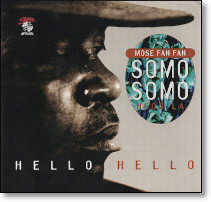 |
 |
 |
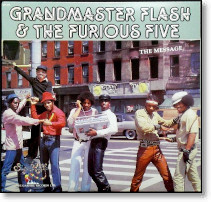 |
 |
 |
Expanded blog post, April archive (final).
Music: Current count 35282 [35256] rated (+26), 220 [214] unrated (+6).
Rough week. I was shocked and saddened to see an obituary for my cousin Don Hull. His father, Bob (Robert Lincoln Hull Jr.), was two years younger than my father, but got married a year before, and Don was 13 months older than me. Dad often said that his job growing up was to keep Bob out of trouble. Bob was the free spirit of the family, and probably figured his job was to add some spice to Dad's life. Bob got drafted and sent to Italy, where a bullet ended his war. He was part disabled, and could only work sit-down jobs. He found one driving a bus, and did that until he retired. I remember them living in a house my grandparents bought in 1942, but in the late-1950s he bought a new house in a development a couple miles southwest of us, other side of the river. We went there often, and Don (their only child) was by far my closest Hull cousin. One time, I ran away from home and spent a week or two there. We saw a lot of the Hull family until 1965, when my grandfather died. Shortly after, Uncle George died, and Bob and Lucille got divorced. I saw a lot of Bob and his second wife, Nellie, after that, but lost track of Don.
I ran into him again after I moved back to Wichita in 1999. He married, had four grown children, and a few grandchildren. He lived in El Dorado, but had a job in East Wichita, as manager of the body shop at Rusty Eck Ford. I felt instantly at ease with him, like we had a deeper connection than I recalled -- most likely, part of that was how much he reminded me of his father. (Bob and Nellie retired and moved into a trailer outside of Las Vegas. I visited them five or six times there, and they were our witnesses when Laura and I got married.) We socialized some. He fixed up some dents, and helped us buy a car. We had Don and his wife Karen, his mother Lucille, and her second husband, Glen, over for a particularly memorable dinner. Bob and Nellie had died the year before, and Lucille and Glen died a year or two later. Lately, I've mostly seen him at funerals -- most recently at Uncle James's. Always comforting to know that he was there. I wasn't aware that he was ill.
Day before seeing the obituary, I thought about calling him, hoping to compare notes on early family memories -- another opportunity I've blown. I went to the funeral on Saturday. I estimated there were about 100 people at the funeral, and close to 40 at the cemetery. Don was one of those guys who got along with everyone. Still, it was a different slice of Wichita than I'm used to. Most obviously, I doubt as many as 10 people wore masks. The minister was a close personal friend of the family, so the event had a personal familiarity that many funerals lack. Only person I knew there was Karen, but I got a chance to meet their grown children, some spouses, and some or all of the grandchildren. We talked about keeping in touch, but I don't know whether we'll see more of them. Three live in Wichita (the other in Arizona), and the youngest son is living in Bob & Lucille's old house on Euclid. Perhaps if they want to know more of the family.
I'm working on a memoir, which includes some memories and stories of the Hull family. My grandfather looked into this long ago. His grandfather, Abraham Hull, had homesteaded in western Kansas in 1868, near where my father and his siblings were born 1919-31. His grandfather was named Thomas Hull -- the only namesake I can find, although my father never mentioned him. Evidently, he joined the Irish Rebellion of 1798, and fled to Pennsylvania to avoid getting hung by the British. Maybe I was fated to be a troublemaker?
While in this rut, here is an obituary for our friend Rubena Bradley. She died, at 91, a few weeks ago, but her family has been moving slowly toward some sort of funeral/remembrance (in May, I think). She was a remarkable woman, and we were fortunate to know her. An interesting piece, not least for the curious omission of information on Mr. Bradley.
Didn't listen to much new music this week, allowing the pending queue to expand to 17 albums. Part of my lack of urgency is that more than half (11/17) of those aren't scheduled for release until May. Meanwhile, I've been combing through my list of records that Robert Christgau graded A- but I hadn't heard. This week's slice runs from E-H, although I skipped a few, some because I couldn't find them, some because I didn't fancy them at the moment). The list I'm working off has 2550 lines (326 A- grades, 31 A, 4 A+ -- the latter are comedy albums, something I've never got in the habit of listening to, even though I have the Richard Pryor box on the shelf), and it's certainly not complete, so will take a fair while to process. I'll probably tire at some point, but at the moment it's easier and more fun than trying to figure out what's new and worth the trouble.
Saw a comment on Facebook last week claiming that Jorge Ben's 1970s albums constituted one of the most impressive runs of any recording artist anywhere. I had a couple of his LPs back in the 1970s, but don't recall being very impressed, and they're currently ungraded in my database. The only one Christgau reviewed was Gil E Jorge (1975), which he had at A- and I have at B. It's the sort of record I should revisit (as I did this week to previous B grades for Etoile De Dakar and Woody Guthrie).
Thought I had froze this Sunday night, but as I was writing the intro above, played a few more records, and figured they'd be better here than held back until next week. (Especially the early Hamell on Trial records, which I couldn't find when I initially looked for them -- also had that problem with Rant & Roll.) One thing I didn't get to was doing the indexing for the April, 2021 Streamnotes compendium. I'll wrap that up later this week.
We didn't watch any of the Oscars last night. Thanks to streaming, we wound up seeing more nominated movies this year (6 of 8 nominated for best picture, missing The Father and giving up on Sound of Metal), but nothing especially great there. I would normally be delighted to see human-scaled small films come to the forefront, but that's because they're usually much better.
Finished reading Russell Cobb's The Great Oklahoma Swindle: Race, Religion, and Lies in America's Weirdest State. I learned a few things there, but I would have preferred a better organized history, as opposed to the loosely stitched mosaic of standalone articles.
New records reviewed this week:
- Focusyear Band 2021: Bosque (2021, Neuklang): [cd]: B+(*) [04-29]
- Binker Golding/John Edwards/Steve Noble: Moon Day (2020 [2021], Byrd Out): [r]: B+(***)
- Nortonk: Nortonk (2020 [2021], Biophilia): [cdr]: B+(**)
- Irène Schweizer/Hamid Drake: Celebration (2019 [2021], Intakt): [r]: A-
- Todd Snider: First Agnostic Church of Hope and Wonder (2021, Aimless): [r]: A-
Old music:
- Earth, Wind & Fire: Open Our Eyes (1974, Columbia): [r]: B+(***)
- The English Beat: I Just Can't Stop It (1980, IRS): [r]: A-
- Etoile 2000: Dakar Sound Volume 1 (1980-81 [1993], Dakar Sound): [yt]: B+(***)
- Etoile De Dakar: Volume 3: Lay Suma Lay (1981 [1996], Sterns): [r]: A-
- Etoile De Dakar: Volume 5: Maléo (1981 [2009], Sterns): [r]: B+(***)
- Eurythmics: Greatest Hits (1982-90 [1991], Arista): [r]: B+(**)
- Mose Se 'Fan Fan': Belle Epoque (1970-82 [1994], RetroAfric): [r]: B+(***)
- Mose Fan Fan/Somo Somo/Ngobila: Hello Hello (1995, Sterns): [r]: A-
- The Fellow Travellers: Things and Time (1993, OKra): [r]: B+(***)
- Fine Young Cannibals: Fine Young Cannibals (1985, IRS): [r]: B+(**)
- Fine Young Cannibals: The Finest (1985-89 [1996], MCA): [r]: A-
- A Flock of Seagulls: A Flock of Seagulls (1982, Jive): [r]: B+(**)
- Tennesse Ernie Ford: Sixteen Tons (1949-56 [1995], Capitol): [r]: B+(**)
- Gilberto Gil: Louvaçao (1967, Phillips): [r]: B+(**)
- Gilberto Gil: Gilberto Gil [Frevo Rasgado] (1968 [1998], Universal): [r]: A-
- Gilberto Gil: Gilberto Gil [Cérebro Eletrônico] (1969, Phillips): [yt]: B+(***)
- Gilberto Gil: Expresso 2222 (1972 [1993], Philips): [r]: B+(**)
- Grandaddy: Just Like the Fambly Cat (2006, V2): [r]: B+(***)
- Grandmaster Flash and the Furious Five: The Message (1982, Deep Beats): [r]: A-
- Woody Guthrie: Hard Travelin': The Asch Recordings, Vol. 3 (1944-49 [1998], Smithsonian/Folkways): [r]: A-
- Hamell on Trial: Big as Life (1995, Mercury): [bc]: B+(*)
- Hamell on Trial: The Chord Is Mightier Than the Sword (1997, Mercury): [bc]: B+(**)
- Hamell on Trial: Choochtown (1999, Such-a-Punch): [r]: B+(***)
- Hamell on Trial: Ed's Not Dead -- Hamell Comes Alive (2000, Such-a-Punch): [r]: B+(***)
- Hamell on Trial: Tough Love (2003, Righteous Babe): [bc]: B+(**)
- Hamell on Trial: Yap (2003, Such-a-Punch): [r]: B+(**)
- Hamell on Trial: Rant & Roll [Live From Edinburgh: The Terrorism of Everyday Life] (2007 [2008], Righteous Babe): [bc]: A-
Grade (or other) changes:
- Etoile De Dakar: Volume 2: Thiapathioly (1980 [1994], Sterns): [r]: [was: B] B+(***)
- Woody Guthrie: Muleskinner Blues: The Asch Recordings, Vol. 2 (1944, Smithsonian/Folkways): [r]: [was: B] B+(***)
Unpacking: Found in the mail last week:
- Gabor Lesko: Earthway (Creativity's Paradise Music) [05-14]
- Madre Vaca: The Elements (Madre Vaca) [06-12]
- Shawn Maxwell: Expectation & Experience (Jazzline) [05-21]
- Ojoyo: Plays Safrojazz (1996, Sunnyside) [05-28]
- Jeannine Otis: Into My Heart (Adrielle Music/Monpolyhouse)
- Ruben Reinaldo & Kely Garcia: Acuarel (Free Code)
- Steve Tintweiss and the Purple Why: Markstown (Inky Dot Media)
- Amber Weekes: 'Round Midnight Re-Imagined (Amber Inn Productions) [05-01]
Friday, April 23, 2021
Daily Log
I look at the obituaries every day, and almost never see someone I knew. But I was shocked to see one for Donald Hull today. I wrote the following on Facebook:
Just saw an obituary for my cousin Don Hull. Funeral tomorrow. He was probably my closest relative growing up. His father and mine were especially close, and he was my closest peer, one year older. When I ran away from home as a teenager, I went to his house for shelter. Lost track of him when we grew up, and never met his four children. But I ran into him after I moved back to Wichita, and I've never felt more comfortable with a dear friend. Last saw him at Uncle James's funeral, but I was just thinking last night I should call him. Wanted to check his memory on some things about his parents and our grandparents. All gone now. My sympathies to his dear wife Karen.
Monday, April 19, 2021
Music Week
 |
 |
 |
 |
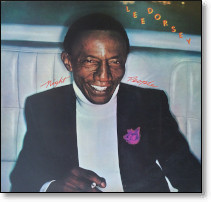 |
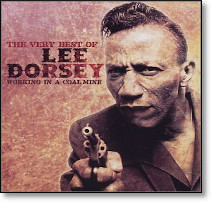 |
 |
 |
Expanded blog post, April archive (in progress).
Music: Current count 35256 [35216] rated (+40), 214 [211] unrated (+3).
Thought I'd sample some records from Chuck Eddy's 150 Best Albums of 1992/'93, but I didn't get very far. He does have two of my A records in his top ten (David Murray: Shakill's Warrior, and Justin Warfield: My Trip to Planet 9), and another dozen-plus albums I like further down the list, but nothing I played came close to A-. I gave up three cuts into Caifanes' rock en español El Silencio, not feeling like even trying to write something on it.
But also my mind moved on to another idea: why not try to stream Christgau A-list albums that I had missed? One of those was on Eddy's list: Uz Jsme Doma's Hollywood. I vaguely remembered assembling a crib sheet like that. When I had trouble finding it, I constructed another one (although my method wasn't flawless). Looking for A/A+ records mostly gave me comps I had different versions of. For instance, Christgau reviewed three different but overlapping compilations of Lee Dorsey's 1960s singles, all graded A. I had the 1985 Holy Cow! The Best of Lee Dorsey on LP, and the 1997 Wheelin' and Dealin': The Definitive Collection on CD, so didn't see much need to pick up Music Club's shorter/cheaper 2001 package -- or review it now given how long it's been out of print. But as an afterthought, I did construct an equivalent playlist, and gave it a couple spins just to see how it fit together. Pretty good, of course.
I've built playlists to match unavailable albums a few times. While there's always a risk of picking out the wrong version, I've found it to be useful -- especially for assembling original albums from later, more expansive box sets. The other thing I tend to do is to drop bonus cuts from stream albums, to get back to the original excuses. Christgau recently commented that it's hard to go back and do retrospectives of pre-CG years (1960s) because so many reissues add extraneous material. If streaming works for you, it's actually pretty easy. It also has the advantage of establishing a stable baseline, which later reissues can preserve or deviate from.
I got an invite to vote in DownBeat's Critics Poll. I worked through the ballots today, trying to put as little thought into it as possible. When I was first invited, I wound up spending a couple days turning over each question. I became increasingly frustrated, then annoyed. To speed things up, last year I wound up leaning heavily on my previous year's picks. I raced through the thing today, complete in less than four hours. Here are my notes. Maybe I'll do some research on it later. But one thing I've noticed in recent years is that my own votes have next to zero effect. One indication of how out of step I am with the critical consensus is that I gave A/A- grades to only 8 of their 97 album of the year nominees. Conversely, they only nominated 8 of my 84 A-list albums from my 2020 Best Jazz file. OK, they (wrongly, I think) offset the year by three months, so the lists don't exactly line up. On the other hand, they nominated zero of my 8 (so far) 2021 A- jazz releases. (I'm most surprised they missed Miguel Zenón's Law Years. I haven't figured out how any 2021 releases they nominated, but the answer must be not many. On the other hand, they nominated a Sons of Kemet album, Black to the Future I hadn't heard of, probably because it doesn't drop until May 14.)
Everyday life has been slightly better this week. We got our taxes figured and filed. I got a new batch of prescriptions from my obscure Medicare D provider. Snow is forecast for tonight, but I doubt we'll have to shovel anything to get to Laura's hair appointment tomorrow. Still too many struggles, but at least I won't have to post anything else until next week.
New records reviewed this week:
- Barry Altschul's 3Dom Factor: Long Tall Sunshine (2021, Not Two): [r]: A-
- Avishai Cohen: Two Roses (2020 [2021], Naive): [r]: B+(*)
- Damata: What's Damata (2021, Dugnad): [cd]: B+(***)
- Scott DuBois: Summer Water (2021, Sunnyside): [r]: B+(**)
- Jared Feinman: Love Is an Obstacle (2021, West of Philly): [cdr]: B+(*)
- Vijay Iyer: Uneasy (2020 [2021], ECM): [r]: B+(***)
- Natsuki Tamura/Satoko Fujii: Keshin (2020 [2021], Libra): [cd]: B+(**)
- Three-Layer Cake: Stove Top (2020 [2021], RareNoise): [cdr]: B+(***) [05-28]
- Michael Waldrop: Time Frames (2019-20 [2021], Origin): [cd]: B+(***)
- Rodney Whitaker: OutroSpection: The Music of Gregg Hill (2020 [2021], Origin): [cd]: B+(*)
Recent reissues, compilations, and vault discoveries:
- New Moon Jelly Roll Freedom Rockers: Volume 1 (2007 [2020], Stony Plain): [r]: B+(**)
- New Moon Jelly Roll Freedom Rockers: Volume 2 (2007 [2021], Stony Plain): [r]: B+(**)
Old music:
- Black Uhuru: Chill Out (1982, Mango): [r]: B+(**)
- Blake Babies: Innocence and Experience (1986-91 [1993], Mammoth): [r]: A-
- Boogie Down Productions: Sex and Violence (1992, Jive): [r]: A-
- The Books: Thought for Food (2002, Tomlab): [yt]: B+(***)
- The Books: The Lemon of Pink (2003, Tomlab): [r]: B+(*)
- The Books: Lost and Safe (2005, Tomlab): [yt]: B+(***)
- The Bottle Rockets: 24 Hours a Day (1997, Atlantic): [r]: B+(***)
- Cybotron: Enter (1983, Fantasy): [r]: B+(*)
- The dB's: Stands for Decibels (1981, Albion): [yt]: B+(**)
- The DeBarges: The DeBarges (1981, Gordy): [r]: B+(**)
- DeBarge: All This Love (1982, Gordy): [r]: B+(***)
- DeBarge: Rhythm of the Night (1985, Motown): [r]: B+(*)
- El DeBarge: El DeBarge (1986, Gordy): [r]: B+(*)
- El DeBarge: Gemini (1989, Motown): [r]: B
- The Del-Lords: Get Tough: The Best of the Del-Lords (1984-90 [1999], Restless): [r]: B+(***)
- Descendents: Milo Goes to College (1982, New Alliance): [r]: B+(***)
- Descendents: Bonus Fat (1980-81 [1985], New Alliance): [r]: B+(**)
- Descendents: Somery (1981-87 [1991], SST): [r]: B+(***)
- Lee Dorsey: Yes We Can (1970, Polydor): [r]: A-
- Lee Dorsey: Yes We Can . . . and Then Some (1970 [1993], Polydor): [r]: A-
- Lee Dorsey: Night People (1978, ABC): [r]: A-
- Lee Dorsey: Working in a Coalmine: The Very Best of Lee Dorsey (1961-78 [2001], Music Club): [r]: A
- Dr. Buzzard's Original Savannah Band: James Monroe H.S. Presents Dr. Buzzard's Original Savannah Band Goes to Washington (1979, Elektra): [yt]: B+(***)
- Freestyle Fellowship: Inner City Griots (1993, 4th & B'way): [r]: B+(**)
- Prince Lasha/Sonny Simmons/Clifford Jordan/Don Cherry: It Is Revealed (1963, Zounds): [yt]: B+(**)
- Midi, Maxi & Efti: Midi, Maxi & Efti (1991, Columbia): [yt]: B+(***)
- Sonny Simmons: Burning Spirits (1970 [2003], Contemporary): [r]: B+(**)
- Sonny Simmons: American Jungle (1995 [1997], Qwest/Warner Bros.): [r]: A-
- Sonny Simmons Quintet: Mixolydis (2001 [2002], Marge): [r]: B+(**)
- Sonny Simmons Trio: Live in Paris (2001 [2002], Arhoolie): [r]: B+(**)
- Uz Jsme Doma: Hollywood (1993 [1996], Skoda: [r]: B+(**)
Grade (or other) changes:
- DeBarge: In a Special Way (1983, Gordy): [r]: [was: B+] A-
Unpacking: Found in the mail last week:
- Enzo Carniel/Filippo Vignato Silent Room: Aria (Menace)
- Focusyear Band 2021: Bosque (Jazzcampus) [04-29]
- Aaron Germain: Bell Projections (Aaron Germain Music) [05-14]
- Ben Goldberg: Everything Happens to Me (BAG Productions) * [06-18]
- Maria Grand: Reciprocity (Biophilia) [05-14]
- James Brandon Lewis Red Lily Quintet: Jesup Wagon (Tao Forms) [05-07]
- Simon Moullier Trio: Countdown (Fresh Sound New Talent) [06-11]
- Quartet Nortonk: Quartet Nortonk (Biophilia)
- The United States Air Force Band Airmen of Note: The 2021 Jazz Heritage Series (self-released)
Sunday, April 18, 2021
Book Roundup
Thursday, April 15, 2021
Daily Log
Posted this on Facebook:
Listening to the defense's hired "medical examiner" brought back some memories. My brother, sister, and I were with our mother when she died. She was in the hospital, and we could see her heartbeat monitor. We could see her going into arrhythmia and cardiac arrest just before she died, but you'd have to be blinkered to see that as the cause of her death. It was how she died, but not why. She was stable on a breathing machine for 5 days before we had it removed. She died a few hours after, so the big difference was that she wasn't able to breathe adequately -- in effect she suffocated, but much slower than she would have had someone knelt on her neck -- and the arrhythmia and cardiac arrest were the result. This was my second experience with ordering removal of a breathing machine. The first was with my first wife, who died about an hour after. I wasn't in the room then, so didn't observe her death. The death certificate said she had died of cardiac arrest, but noted that it was a consequence of necrotizing fascitis, which itself was occasioned by long-term diabetes. The three causes of death were neatly qualified by time frames (seconds or minutes, days or weeks, years). George Floyd may well have had underlying medical conditions that would have killed him in days, weeks, or years, but it was Derek Chauvin who snuffed out his life in minutes. Chauvin himself will die eventually, but even he must appreciate the difference between letting nature take its course and being executed by the state.
Cooked dinner yesterday. Posted this to Facebook, with this image:
Ran out of ground bean paste last week, so I went shopping at Thai Binh. Picked up a few odds and ends with no real plan, but turned them into dinner tonight: twice-cooked pork belly, fried rice with Chinese sausage, stir-fried baby bok choy, sliced eggplant with peanut sauce, a Chinese slant on roasted brussels sprouts.
Was nice to have a project I could actually do, one that took my mind off all the other things I've been failing at. I boiled the pork and the rice the day before. Managed everything else in about three hours. The only real problem was that I wanted to grill the eggplant and brussels sprouts, but the gas grill didn't cooperate. I did manage to get it lit, but the thermometer never reached 200F, and I gave up after 15-20 minutes. Presumably some problem with the gas flow. I'll have to take it apart and inspect. Meanwhile, I roasted the eggplant and brussels sprouts in a 400F oven -- cooked them adequately, but not very satisfying. I screwed up the peanut sauce also: thought it looked too thin, so added more peanut butter, and it wound up too thick. Also overdid the garlic and hot oil a bit. Had to use an frostinging spatula to spread it. I put the brussels sprouts in a frying pan, heated it up, added some sesame oil and soy sauce, hoping to get a little more brown.
Monday, April 12, 2021
Music Week
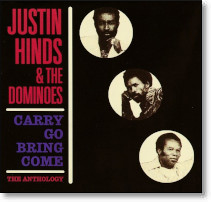 |
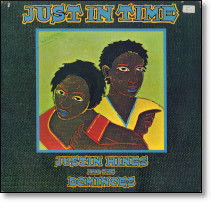 |
 |
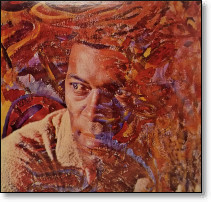 |
 |
 |
Expanded blog post, April archive (in progress).
Music: Current count 35216 [35184] rated (+32), 211 [209] unrated (+2).
Allergies kicked in with a vengeance this week, which is one (but by no means the only) reason I'm miserable and in a deep funk. That may have taken a toll here, as all of the recommended albums are in the "old music" section. Still, nothing new came close enough to make me suspect my mood overrode my objectivity -- except maybe the Spoon and White Stripes best-ofs (from 2019 and 2020, respectively). On the other hand, more A-list in the Old Music section than usual.
Was looking forward to Robert Christgau's April Consumer Guide, but got very little from it. I had previously given B+ reviews to the records from Mike, Dua Saleh, and Neil Young, so didn't revisit them. Couldn't find If I Have to Wreck L.A., but I did scrounge up a pretty good collection of earlier Willie Headen songs. I played White Stripes twice, and can imagine why fans like them, but wasn't moved to bump the grade up. The Spoon collection mentioned in the White Stripes review wasn't available anywhere, but I was able to create a songlist with everything on it. I always liked that band, but can't say their songs stand out, even from an average album (like the one I previously missed, Gimme Fiction). On the other hand, that early Spoon album was quite a surprise (but also note, I liked A Series of Sneaks).
Sonny Simmons died last week, so I thought I should take a look at what I missed, but didn't get very far. (Also see how group Cosmosamatics. Rapper DMX also died, but I didn't get to him at all.
New records reviewed this week:
- Tamar Aphek: All Bets Are Off (2021, Kill Rock Stars): [r]: B+(**)
- Rahsaan Barber: Mosaic (2020 [2021], Jazz Music City, 2CD): [cd]: B+(**)
- Benny the Butcher: The Plugs I Met 2 (2021, Black Soprano Family, EP): [r]: B+(**)
- Cabaret Voltaire: Dekadrone (2021, Mute): [r]: B+(*)
- Sarah Mary Chadwick: Me and Ennui Are Friends, Baby (2021, Ba Da Bing!): [r]: B+(**)
- Eminem: Music to Be Murdered By: Side B (2020, Shady/Aftermath/Interscope): [r]: B+(***)
- Joe Fahey: February on Ice (2021, Rough Fish): [r]: B+(***)
- Girl in Red: Chapter 1 (2018, AWAL/Human Sounds): [r]: B+(*)
- Girl in Red: Chapter 2 (2019, AWAL, EP): [r]: B+(*)
- Hennessy Six/Colorado Springs Youth Symphony: The Road Less Traveled (2020 [2021], Summit): [cd]: B+(*)
- Yvette Janine Jackson: Freedom (2021, Fridman Gallery): [bc]: B+(*)
- Joe Lovano & Dave Douglas: Soundprints: Other Worlds (2020 [2021], Greenleaf Music): [cd]: B+(*) [05-07]
- Dax Pierson: Nerve Bumps (A Queer Divine Dissatisfaction) (2021, Dark Entries): [r]: B+(**)
- Jacques Schwarz-Bart: Soné Ka-La 2: Odyssey (2020 [2021], Enja): [cd]: B+(*) [05-21]
- The Weather Station: Ignorance (2021, Fat Possum): [r]: B+(**)
Recent reissues, compilations, and vault discoveries:
- Gary Lucas: The Essential Gary Lucas (1981-2020, Knitting Factory, 2CD): [r]: B+(*)
- Spoon: Everything Hits at Once: The Best of Spoon (2001-19 [2019], Matador): [r]: B+(***)
- The White Stripes: My Sister Thanks You and I Thank You: Greatest Hits (1998-2007 [2020], Third Man/Columbia): [r]: B+(***)
Old music:
- Willie Headen: Blame It on the Blues (1954-60 [2006], Ace): [r]: B+(***)
- Justin Hinds and the Dominoes: Carry Go Bring Come: The Anthology (1963-72 [2005], Trojan, 2CD): [r]: A-
- Justin Hinds and the Dominoes: Jezebel (1976, Island): [yt]: B+(***)
- Justin Hinds and the Dominoes: Just in Time (1978, Mango): [r]: A-
- The Itals: Early Recordings 1971-1979 (1971-79 [1987], Nighthawk): [r]: B+(*)
- The Itals: Give Me Power (1983, Nighthawk): [r]: B+(**)
- The Itals: Rasta Philosophy (1985 [1997], Nighthawk): [r]: B+(***)
- The Itals: Cool and Dread (1988, Nighthawk): [r]: B+(**)
- The Plastic People of the Universe: Apokalyptickej Pták (1976 [2017], Galén): [r]: A-
- Duke Reid's Treasure Chest (1964-70 [1992], Heartbeat, 2CD): [r]: B+(**)
- Sonny Simmons: Staying on the Watch (1966, ESP-Disk): [r]: B+(***)
- Sonny Simmons: Music From the Spheres (1966 [1968], ESP-Disk): [r]: A-
- Sonny Simmons: Manhattan Egos (1969-70 [2000], Arhoolie): [r]: A-
- Spoon: Telephono (1996, Matador): [r]: A-
- Spoon: Gimme Fiction (2005, Merge): [r]: B+(***)
Further Sampling:
Records I played parts of, but not enough to grade: -- means no interest, - not bad but not a prospect, + some chance, ++ likely prospect.
- Adeena Karasick/Frank London: Salomé: Woman of Valor (2020, Nuiu Music): [bc: 1/14, 3:53/?]: +
Unpacking: Found in the mail last week:
- Rossano Baldini: Humanbeing (RareNoise): cdr [05-28]
- David Friesen & Bob Ravenscroft: Passage (Origin)
- Rich Pellegrin: Solitude (OA2)
- Three-Layer Cake: Stove Top (RareNoise): cdr [05-28]
- Michael Waldrop: Time Frames (Origin)
- Rodney Whitaker: OutroSpection: The Music of Gregg Hill (Origin)
Monday, April 05, 2021
Music Week
 |
 |
Expanded blog post, April archive (in progress).
Music: Current count 35184 [35141] rated (+43), 209 [212] unrated (-3).
I had less trouble finding records to listen to last week. I picked some obvious new records off Napster's recommendations list, and decided to follow up Dr. Lonnie Smith's new one with a dive into old catalogue. Aside for a few CDs, most of the rest came from Chris Monsen's 1st quarter round-up, and AOTY's Highest Rated Albums of 2021. I had heard 6 of 20 records on Monsen's (only 2 from promo CDs), so I scrambled to add 9 more, including both of this week's A- records. (Actually, I wrote up Miguel Zenón's Law Years before Monsen posted, so at the time I claimed 7/20, but the review is in this week's batch.) The other five don't seem to be available online, at least complete enough to review.
I'm not tracking reviews this year, so had no idea which albums might be on the AOTY list, and indeed had no idea most of them existed. (The ones I had previously reviewed were: Floating Points, Ghetts -- the former is on the Monsen and Phil Overeem lists, while the latter was the first thing I checked out from the AOTY list. Julien Baker is also on Overeem's list. I've heard 15 of Overeem's 30 records, counting Baker this week.
Just saw Dave Sumner's Best Jazz on Bandcamp: March 2021. I've heard 3 of 14 records. More alarmingly, I haven't heard of most of the artists. More evidence I'm falling far behind.
I'm a bit chagrined over the two A- records this week. Zenón's publicist still sends me most records. I got some email on this one, but the CD never showed up. Takase's label was sending me promos up to some time in 2019, so not getting this one was less of a mystery. I made up for the lost promos by streaming most of their releases on Napster, which is where I found this one. I'd be happy to continue in that way, but their more recent releases aren't on Napster, and one by Alexander Hawkins that came out the same day as Takase's has been withdrawn. Intakt does use Bandcamp, but don't offer complete albums there, so they're no substitute for reviewers. I count six A- records on Intakt last year, so not being able to review their releases will be a major loss.
April should be less stressful -- unless, as forecast, we get hit by an exceptionally rough tornado season, or the earthquakes on the east side of town get more severe. (It is established that they're caused by injection wells between Wichita and El Dorado.) I got my second Covid-19 vaccination a couple weeks ago, and Laura got hers on Saturday. Perhaps we'll soon be able to entertain for the first time in more than a year.
One frequent dinner guest from recent years will be missed. Rubena Bradley died last week. I haven't seen an obituary yet, but have heard from good friends -- two of her six daughters. They've invited us to Thanksgiving several years -- one with all six daughters visiting. A remarkable family. We're fortunate to have known Ruby.
New records reviewed this week:
- The Anchoress: The Art of Losing (2021, Kscope): [r]: B+(***)
- Julien Baker: Little Oblivions (2021, Matador): [r]: B+(*)
- Yaala Ballin: Sings Irving Berlin (2021, SteepleChase LookOut): [r]: B+(***)
- Jon Batiste: We Are (2020 [2021], Verve): [r]: B+(**)
- John Butcher/Veryan Weston/Øyvind Stonesund/Dag Erik Kriedal Andersen: Mapless Quiet (2018 [2020], Motvind): [bc]: B+(**)
- Nick Cave & Warren Ellis: Carnage (2021, AWAL): [r]: B
- Michael Dease: Give It All You Got (2019 [2021], Posi-Tone): [r]: B+(*)
- Dry Cleaning: New Long Leg (2021, 4AD): [r]: B+(**)
- Paul Dunmall/Percy Pursglove/Olie Brice/Jeff Williams: Palindromes (2020 [2021], West Hill): [bc]: B+(***)
- For Those I Love: For Those I Love (2019 [2021], September): [r]: B+(***)
- Frode Haltli: Avant Folk II (2021, Hubro): [bc]: B+(**)
- Joseph Howell Quartet: Live in Japan (2018 [2021], Summit): [cd]: B+(**)
- Kari Ikonen: Impressions, Improvisations and Compositions (2020 [2021], Ozella): [r]: B+(***)
- La Femme: Paradigmes (2021, Disque Pointu): [r]: B+(**)
- Charles Lloyd & the Marvels: Tone Poem (2020 [2021], Blue Note): [r]: B+(***)
- Pat Metheny: Road to the Sun (2021, BMG Modern): [r]: B
- Ali Shaheed Muhammad & Adrian Younge: Jazz Is Dead 4: Azymuth (2020, Jazz Is Dead): [bc]: B
- Ali Shaheed Muhammad & Adrian Younge: Jazz Is Dead 5: Doug Carn (2020, Jazz Is Dead): [bc]: B+(***)
- Ali Shaheed Muhammad & Adrian Younge: Jazz Is Dead 6: Gary Bartz (2021, Jazz Is Dead, EP): [bc]: B+(***)
- Nubiyan Twist: Freedom Fables (2021, Strut): [r]: B
- R+R=Now: Live (2018 [2021], Blue Note): [r]: B
- Dan Rose: Last Night . . . (2017 [2021], Ride Symbol): [cd]: B+(*)
- Dan Rose/Claudine Francois: New Leaves (2019 [2021], Ride Symbol): [cd]: B+(**)
- Serpentwithfeet: Deacon (2021, Secretly Canadian): [r]: B+(*)
- Skarbø Skulekorps: Dugnad (2020 [2021], Hubro): [r]: B+(**)
- Dr. Lonnie Smith: Breathe (2021, Blue Note): [r]: B+(**)
- Veronica Swift: This Bitter Earth (2021, Mack Avenue): [r]: B+(***)
- Aki Takase/Christian Weber/Michael Griener: Auge (2019 [2021], Intakt): [r]: A-
- Thumbscrew: Never Is Enough (2019 [2021], Cuneiform): [dl]: B+(***)
- Tony Tixier: I Am Human (2020 [2021], Whirlwind, EP): [r]: B+(*)
- Adrian Younge & Ali Shaheed Muhammad: Jazz Is Dead 3: Marcos Valle (2020, Jazz Is Dead, EP): [bc]: B+(***)
- Miguel Zenón & Luis Perdomo: El Arte Del Bolero (2020 [2021], Miel Music): [r]: B+(***)
- Miguel Zenón/Ariel Bringuez/Demian Cabaud/Jordi Rossy: Law Years: The Music of Ornette Coleman (2019 [2021], Miel Music): [r]: A-
Recent reissues, compilations, and vault discoveries:
- Roberto Miranda's Home Music Ensemble: Live at Bing Theatre: Los Angeles, 1985 (1985 [2021], Dark Tree): [cd]: B+(***)
- Neil Young: Young Shakespeare (1971 [2021], Reprise): [r]: B+(**)
Old music:
- Lonnie Smith: Think! (1968 [1969], Blue Note): [r]: B+(**)
- Lonnie Smith: Turning Point (1969, Blue Note): [r]: B+(*)
- Lonnie Smith: Move Your Hand (1969 [1970], Blue Note): [r]: B+(**)
- Lonnie Smith: Live at Club Mozambique (1970 [1995], Blue Note): [r]: B+(***)
- Lonnie Smith: Mama Wailer (1971, Kudu): [r]: B+(**)
- Lonnie Smith/Alvin Queen: Lenox and Seventh (1985 [2000], Black & Blue): [r]: B+(***)
- Dr. Lonnie Smith: Boogaloo to Beck: A Tribute (2003, Scuffin'): [r]: B+(*)
- Dr. Lonnie Smith: Rise Up! (2008 [2009], Palmetto): [r]: B+(**)
- Neil Young: Eldorado (1989, Reprise, EP): [yt]: B+(**)
- Neil Young: Arc (1991, Reprise): [r]: B
Unpacking: Found in the mail last week:
- Damata: What's Damata (Dugnad) [04-16]
Sunday, April 04, 2021
Book Roundup
Thought it might be a good time to do another Book Roundup. Last ones were October 16 and October 14, just before the 2020 election, when I was trying to round up anything (and everything) out on Trump. Those followed two more 2020 posts, from May 21 and May 16. I doubt Trump caused more people to read in 2020, but he sure stimulated more people to write.
Ground rules here: 40 books in the main section, some of which got me to tack on a supplemental reading list, and a final section of books I noticed but decided not to comment on (other than minor notes; e.g. on author identity). I may expand on the short listings in the future, but most often I just want to put the books behind me.
Very little out yet on the big stories of 2020: the pandemic, the recession, and the election, but see the Allen and Zakaria entries below -- oddly enough, given how much was written about the 2008 recession, there is as yet very little specifically on 2020's economic downturn. On the other hand, there is a lot about US foreign policy, including the long and interminable proclivity for war. I missed several opportunities to combine entries, but the books I focused on seem like significant ones. I limited my China entry to current affairs, especially the superpower rivalry that has Washington hawks so excited. I found more historical books on China, but didn't get them organized, so they'll wait.
Robert Christgau wrote a review of the Sublettes' book, so I figured I should look at it, even though it's a few years old (2016). At the time, I was reading Michael W Twitty's The Cooking Gene: A Journey Through African American Culinary History in the Old South, which covers the same territory from an opposite tack: reconstructing the past from what it's left in the present. I then started looking for other books on slavery, and was surprised to come up with a long set of monographs I hadn't previously noted before. Also surprised to find that most of them were based outside of the US, with some viewing the slave trade from Africa and/or Europe.
Only books I've read from the following list are those by: Mike Konczal, Stephen Wertheim. (I've also read a lot by Millhiser in Vox.) Nothing else on the shelf or on order. I usually find several books I'm eager to read, so this seems like slim pickings, but my writing projects are so up in the air I'm not sure which direction to look. Certainly not to the several right-wing books noted below, which are unlikely to offer anything but evidence of how conservatism has devolved into nothing but more than a deranged and pathetic mental state. I've done similar things in the past, but the supplemental list under Soukup sets a new record for unhinged paranoia. The common perception here is that it's the left that's out to destroy America, which strains credulity two ways: what do they mean by destroy? and who is this left that has so much influence and power? The mind boggles. (Many on the left have chosen not to contest the right over patriotism, given its close association with militarism and chauvinism, but as the right becomes ever more blatant in their antipathy to democracy, we're now starting to see articles arguing that it's the right that's become un-American. A welcome piece here: Zack Beauchamp: The conservative movement is rejecting America.)
I probably have enough books for a follow-up post, but have yet to write much about half of what I'd need. I'm also thinking about doing separate posts on music and cooking books, but I'd be hard-pressed to come up with enough of either, unless I extended by time window.
Jonathan Allen/Amie Parnes: Lucky: How Joe Biden Barely Won the Presidency (2021, Crown): Political reporters for NBC News and The Hill, were first out the gate with their 2016 election book Shattered: Inside Hillary Clinton's Doomed Campaign, evidently figured they'd match that with a quickie account of how Biden was similarly doomed, then when he won had 30 seconds or so to choose a new title. The lucky campaigner both times was Trump, but by 2020 he had dug such a deep hole that even his luck couldn't pull him out. More on the 2020 election (ignoring books on how Trump was robbed):
- Andrew E Busch/John J Pitney: Divided We Stand: The 2020 Elections and American Politics (2021, Rowman & Littlefield).
- Larry J Sabato/Kyle Kondik/J Miles Coleman, eds: A Return to Normalcy? The 2020 Election That (Almost) Broke America (2021, Rowman & Littlefield).
Albena Azmanova: Capitalism on Edge: How Fighting Precarity Can Achieve Radical Change Without Crisis or Utopia (paperback, 2020, Columbia University Press): I don't think I ever heard "precarity" before about a year ago, but it must have popped up a dozen times since. Same root as "precarious," but refers to the general condition, where everything is precarious, which is to say optimized and marginalized to the point where it could break any moment. In 2020, even before any significant numbers of people became infected with Covid-19, before retail stores were locked down, highly optimized "just-in-time" supply lines crippled the economy. Then within a few weeks health care and retail firms broke down due to shortages. For another example, in March 2021 a ridiculously oversized ship got blown into a bank of the Suez Canal, disrupting worldwide shipping. A month before that, a cold snap broke the power grid in Texas, which in turn broke water systems. So yeah, precarity is everywhere. This isn't unrelated to what Naomi Klein calls "disaster capitalism," but shows that Klein was far too optimistic in her expectation that capitalists would continue to profit from disasters. Clearly, there are limits, and that opens up political opportunities for challenging precarity. To cite one example, it's long been clear to me that it's too late to prevent global warming. Sure, there are things one can still do to keep it from getting much worse, and as an engineer I appreciate the advantages of prevention over repair, but the pressing need now is for disaster contingency and recovery. And that may mean rolling back and limiting capitalism's drive for profit.
Nicholson Baker: Baseless: My Search for Secrets in the Ruins of the Freedom of Information Act (2020, Penguin Press): A history of "Project Baseless": "a crash Pentagon program begun in the early fifties that aimed to achieve 'an Air Force-wide combat capability in biological and chemical warfare at the earliest possible date.'" Or perhaps that's just the prism for a book on what we can glean from what the government tries to hide from us, imperfectly illuminated by the law's requirement that the government is obligated to answer (not all that completely) the public's questions. "Along the way, he unearths stories of balloons carrying crop disease, leaflet bombs filled with feathers, suicidal scientists, leaky centrifuges, paranoid political-warfare tacticians, insane experiments on animals and humans, weaponized ticks, ferocious propaganda battles with China, and cover and deception plans meant to trick the Kremlin into ramping up its germ-warfare program."
Vincent Bevins: The Jakarta Method: Washington's Anticommunist Crusade and the Mass Murder Program That Shaped Our World (2020, PublicAffairs): Details the systematic massacre of hundreds of thousands of alleged leftists in Indonesia in 1965-66, supported by the US and to a large extent directed by the CIA. This was one of the most egregious examples of a pattern repeated elsewhere, especially in Latin America (Argentina, Bolivia, Brazil, Chile, Paraguay, Uruguay, Nicaragua, El Salvador, Guatemala, Colombia, Venezuela), and even more brutally under cover of war (Vietnam, Cambodia). And, of course, most recently with the "targeted [and less discriminating] killings" of the "Global War on Terror." Related:
- Vijay Prashad: Washington Bullets: A History of the CIA, Coups, and Assassinations (paperback, 2020, Monthly Review Press).
Rosa Brooks: Tangled Up in Blue: Policing the American City (2021, Penguin Press): OK, this one is weird. Author is daugher of trained scientist and radical journalist Barbara Ehrenreich, who (among much else) went undercover to work shit jobs and wrote a bestseller about her experiences. Brooks became a lawyer, married a career soldier, got a job working in the Pentagon, wrote a book about it -- more pro-military than I'd like, but not stupid either. For her second book, she immersed again, becoming a sworn, armed reserve police officer in the Washington, DC Metropolitan Police Department. She trained like a regular cop but just worked 24 hours per month, patrolling streets and busting suspects, while keeping her tenured job teaching at Georgetown. I read a few pages, and her experiences are interesting enough. I haven't seen her conclusions, but probably not stupid either.
Nick Bryant: When America Stopped Being Great: A History of the Present (2021, Bloomsbury): Greatness, even more than beauty, is in the eye of the beholder. America hasn't seemed great to me since the mid-1960s, and what changed then had more to do with my growing understanding of history than tarnished reality (not that the Vietnam debacle didn't drive my review). By 1970, my disillusionment was so complete that later evocations of greatness, like Trump's Make America Great Again boast, struck me as nonsensical (or maybe just a disingenuous way of saying "Make America White Again"). So I was a bit curious to find an author promising to pin down an actual turning point. However, I doubt anyone will like this book. Bryant is British, which means he grew up with his own delusions of greatness, and transferred them to the America that supplanted Britain as the cornerstone and hegemon of world capitalism. Bryant dates this decline from Reagan's ascendency in 1980, and traces the rot through "Bill and Newt" (3rd chapter title) to Donald Trump (last third of the book). There is real substance to that decline, although you had to actually live here to understand the real impact of Reagan-to-Trump (a good book in that regard is Kurt Andersen's Evil Geniuses: The Unmaking of America). But the idea of greatness has always depended on blind spots. When Britain was such a great empire in the mid-19th century, wasn't Dickens writing about ragpickers in London? Indeed, isn't pining for greatness some kind of mental illness? Before Trump, the American politician most associated with the word was Lyndon Johnson, the architect of the Great Society. As I recall, Bill Moyers tried to talk Johnson into calling his social welfare programs the Good Society, but good wasn't good enough for Johnson: he wanted great, which turned out to be unattainable.
Francisco Cantú: The Line Becomes a River: Dispatches From the Border (2018; paperback, 2019, Riverhead Books): Born on the American side of the US-Mexico border, descended from immigrants from the other side, the author worked for the Border Patrol, then quit when the "dehumanizing enterprise" got to be too much for him. A memoir, with further investigations and meditation.
Anne Case/Angus Deaton: Deaths of Despair and the Future of Capitalism (paperback, 2021, Princeton University Press): "Deaths of despair from suicide, drug overdose, and alcoholism are rising dramatically in the United States, claiming hundreds of thousands of American lives." I don't doubt that predatory capitalism and inequality are to blame, but I'd like to expand the matrix to see how war and debt relate -- not independent factors, but concrete manifestations of more general maladies. Harder to measure is how the conservative creeds of self-reliance and distrust in public social services weigh in. Deaton previously wrote The Great Escape: Health, Wealth, and the Origins of Inequality (2013).
Paul Thomas Chamberlin: The Cold War's Killing Fields: Rethinking the Long Peace (2018; paperback, 2019, Harper): The "Cold War" wasn't so cold, and while it could have been much worse, the wars fought for and against "communism" took a huge toll, especially in Asia. Chamberlin cites 14 million dead from 1945-90, which is about one fifth of the WWII death toll and a third of WWI. Focuses on Asia, with early chapters on China, Korea, and Indochina, moving on to Indonesia, Bangladesh, Afghanistan, Iran, and the Middle East, but doesn't seem to cover Europe, Latin America or Africa -- significant arenas of conflict, albeit with lesser body counts. Still, while we should welcome a reminder of how high those body counts were, the most extraordinary thing about America's anti-communist crusade was how global it was. The US sought global power, not through direct rule but by installing a hegemonic politico-economic system everywhere, or failing that by isolating noncomforming nations so they're excluded from the world system. It's hard to exaggerate the amount of hubris that mission required. No surprise it led to millions of careless deaths. Nor did it end in 1990. After the Soviet Union imploded, the quest for domination only grew more determined, as did the inevitable resistance.
Steve Deace/Todd Erzen: Faucian Bargain: The Most Powerful and Dangerous Bureaucrat in American History (paperback, 2021, Post Hill Press): I guess hyperbole sells, at least in certain quarters: "#1 Best Seller" at Amazon, "As seen on Tucker Carlson Tonight, As heard on Glenn Beck." I can understand why the authors don't like knowledgeable authorities, but not why they consider Anthony Fauci either powerful or dangerous. He had little effect within the Trump administration, and rarely challenged the rampant nonsense around him. On the other hand, to be the most "in American history," he has to beat out some seriously powerful and dangerous bureaucrats. Of the top of my head: J Edgar Hoover, Floyd Dominy, Harry Anslinger, Andrew Mellon, Alan Greenspan, Edward Teller, Allen Dulles, Henry Kissinger -- when you start getting into spooks and warlords, the list mushrooms. And beneath the Federal level, you get characters like Robert Moses and William Mulholland -- you can make a pretty strong case for them.
Luke Epplin: Our Team: The Epic Story of Four Men and the World Series That Changed Baseball (2021, Flatiron Books). On the 1948 Cleveland Indians, the first team to integrate in the American League (actually in 1947, after Jackie Robinson joined the Brooklyn Dodgers). The four men are owner Bill Veeck ("as in wreck"), Larry Doby (young black outfielder), Bob Feller (Hall of Fame pitcher, not one of his better years at 19-15 -- actually Bob Lemon had the better year, at 20-14, 2.82 ERA, plus 2-0 in the World Series), and Satchel Paige (old black pitcher). Whereas Dodger GM Branch Rickey looked for a can't miss black player in his prime (Robinson was a 28-year-old rookie in 1947, hit .297, with 125 runs, 12 HR and 29 SB), Veeck sought to blow up all the rationalizations (at least too green and too old) why blacks couldn't play in the majors. Feller was the team's star, but Cleveland hadn't come close until 24-year-old Doby hit .301 with 14 HR and 41-year-old Paige went 6-1 with a 2.48 ERA. By the way, Veeck continued to break patterns in hiring black players, adding Luke Easter and Minnie Minoso in 1949.
Philip H Gordon: Losing the Long Game: The False Promise of Regime Change in the Middle East (2020, St Martin's Press): Certified foreign policy mandarin, Obama's Assistant Secretary of State for European and Eurasian Affairs (2009-13) and White House Coordinator for the Middle East (2013-15), so he's had plenty of opportunity to see "well-intentioned plans" go awry: Libya, Syria, Yemen, and the coup that ended Egypt's brief democracy all occurred on his watch. He also inherited the longer-term consequences of Bush's signature regime change projects: Afghanistan and Iraq. Not to mention efforts going back to 1953 to decide who rules Iran, and for whom. Despite all this empirical evidence -- and this is just the Middle East; one could write similar books on Latin America, Africa, and the Far East -- not clear whether Gordon spells out the core fallacy behind regime change: the belief that other governments should serve not their own people but US national interests. Still, a step in the right direction. Albeit another example of someone who got smarter after leaving the job, having been replaced by others who have yet to learn the same lessons.
Martin Gurri: The Revolt of the Public and the Crisis of Authority in the New Millennium (2014; 2nd Edition, 2018, Stripe Press): Former CIA analyst, complains about how the glut of "open media" today limits the ability of elites to hoodwink the public, leaving most people deeply distrustful. Second edition offers an "I told you so" on Trump, although the list of things he claims to have anticipated also includes Brexit and Arab Spring. I read Sean Illing's interview with this guy at Vox, and didn't get anything useful out of it. I suspect two problems. One is that "elites" have become much more compartmentalized over time: while they still dominate their institutions, they are less linked, and as such have less influence beyond their limited spheres of control. Someone should take a shot at updating C Wright Mills' The Power Elite, not that such a task will be easy. The second is that while elites may have had some widespread value in the past, their prime directive has always been self-preservation, and that becomes harder the easier it is for the public to examine their lives. The simplest explanation for the "revolt of the public" is that most people have come to know better than to trust elites. That some charlatans and posers like Trump have taken advantage only shows that the loss of trust has caused some confusion.
Sarah Jaffe: Work Won't Love You Back: How Devotion to Our Jobs Keeps Us Exploited, Exhausted, and Alone (2021, Bold Type Books): Antonio Gramsci had a concept he called Fordism, where factory work had become so thoughtlessly repetitive workers could disengage and let their minds wander, in some sense reclaiming their own time. That turned out to be a phase, as machines claimed most of those jobs. Since then companies have an ever larger slice of worker time and mind share, as jobs (or more fashionably, careers) follow you home and fill your dreams. This surveys a wide range of work, the common denominators that the employer demands ever more while returning what? Since the 1970s, economists have been preaching that businesses have only one purpose, which is to maximalize investor returns, and as that lesson sunk in, management has become hard pressed to offer any comfort to their workers. Sure, workers are encouraged to find their own value in their dedication. But the returns go elsewhere. Related:
- Mariana Mazzucato: Mission Economy: A Moonshot Guide to Changing Capitalism (2021, Harper Business).
- Jamie Merisotis: Human Work in the Age of Smart Machines (2020, Rosetta Books).
- Gavin Mueller: Breaking Things at Work: The Luddites Are Right About Why You Hate Your Job (paperback, 2021, Verso).
- Jake Rosenfeld: You're Paid What You're Worth: And Other Myths of the Modern Economy (2021, Belknap Press).
- Rick Wartzman: The End of Loyalty: The Rise and Fall of Good Jobs in America (2017, PubicAffairs).
Mike Konczal: Freedom From the Market: America's Fight to Liberate Itself From the Grip of the Invisible Hand (2021, New Press): Drawing on a wide range of historical examples, tries to make the case that the path to greater freedom comes through more free things. Eight chapters, each starting with "Free": Land, Time, Life, Security, Care, Health, Economy, and Education. This contrasts with the neoliberalism, which tries to create markets for everything, assuming their magic will always work for the best.
Ivan Krastev/Stephen Holmes: The Light That Failed: Why the West Is Losing the Fight for Democracy (2020, Pegasus Books): Maybe because the West doesn't really believe in democracy? I mean, sure, it's OK for us, within the constraints of corporate-owned media, but what happens with impoverished masses start electing parties that favor popular interests over those of business elites? You get coups like Guatemala, Iran, Greece, Congo, Brazil, Argentina, Indonesia, Chile (all US-backed, 1950s-1970s), or maybe something more subtle, like the "Washington Consensus" IMF, or the ECB's limits placed on Greece's Syriza government. Trump's "coddling" of authoritarians and plots to overthrow left-leaning governments in Venezuela and Bolivia isn't new policy not likely to change in the Biden restoration. Holmes wrote a good book back in 2007: The Matador's Cape: America's Reckless Response to Terror. Krastev runs something called the Centre for Liberal Strategies, in Sofia, Bulgaria.
Charles A Kupchan: Isolationism: A History of America's Efforts to Shield Itself From the World (2020, Oxford University Press): The first thing to understand about "isolationism" is that it was a word invented to discredit anyone opposed to or skeptical of the global interventionism which developed in and around the Second World War and its anti-communist aftermath -- a formula which has led to endless war and great hardships at home. Before the rise of "liberal internationalism" Americans, starting with George Washington, sought to interact with the world without forming imperial alliances or (for the most part) foreign colonies. Kupchan understands this, but still warns about a resurgence of "isolationism" as a backlash against the repeated failures of the interventionists. It's a phony argument, aimed at no one real, its sole purpose to shelter the disastrous record of its partisans.
Diana Lind: Brave New Home: Our Future in Smarter, Simpler, Happier Housing (2020, Bold Type Books): As far as I can tell, another entry in a recent flurry of books arguing for denser urban living -- antecedents include David Owen's Green Metropolis: Why Living Smaller, Living Closer, and Driving Less Are the Keys to Sustainability, perhaps even Jane Jacobs' pro-urban Death and Life of Great American Cities (1961) and James Howard Kunstler's anti-suburban The Geography of Nowhere: The Rise and Decline of America's Man-Made Landscape (1993). I suspected this new urbanism took a hit with the 2020 pandemic, but maybe it's more important than ever. Related books:
- Alex Krieger: City on a Hill: Urban Idealism in America From the Puritans to the Present (2019, Belknap Press).
- Peter Marcuse/David Madden: In Defense of Housing: The Politics of Crisis (paperback, 2016, Verso).
- Charles L Marohn Jr: Strong Towns: A Bottom-Up Revolution to Rebuild American Prosperity (2019, Wiley).
- Roman Mars/Kurt Kohlstedt: The 99% Invisible City: A Field Guide to the Hidden World of Everyday Design (2020, Houghton Mifflin).
- Charles Montgomery: Happy City: Transforming Our Lives Through Urban Design (paperback, 2014, FSG Adult).
- Daniel Parolek: Missing Middle Housing: Thinking Big and Building Small to Respond to Today's Housing Crisis (paperback, 2020, Island Press).
- Shane Phillips: The Affordable City: Strategies for Putting Housing Within Reach (And Keeping It There) (paperback, 2020, Island Press).
- Josh Ryan-Collins/Toby Lloyd/Laurie Macfarlane: Rethinking the Economics of Land and Housing (paperback, 2017, Zed Books).
- David Sim: Soft City: Building Density for Everyday Life (paperback, 2019, Island Press).
- Jeff Speck: Walkable City: How Downtown an Save Ameria, One Step at a Time (paperback, 2013, North Point Press).
- Jeff Speck: Walkable City Rules: 101 Steps to Making Better Places (paperback, 2018, Island Press).
Bjorn Lomborg: False Alarm: How Climate Change Panic Costs Us Trillions, Hurts the Poor, and Fails to Fix the Planet (2020, Basic Books): The "skeptical environmentalist" (title of his 2001 book) is still in business, as one of the most skillful opponents of climate change activism, not really trying to deny the problem but always insisting that we refrain from rash acts and be conscientious about costs, offering the odd proposal that isn't acted on either -- a typical title is Smart Solutions to Climate Change, Comparing Costs and Benefits (2010). He might be more credible had he not been latched onto by companies that profit from burning carbon-based fuels. Related:
- Steven E Koonin: Unsettled? What Climate Science Tells Us, What It Doesn't, and Why It Matters (2021, BenBella Books). [04-27]
- Michael Shellenberger: Apocalypse Never: Why Environmental Alarmism Hurts Us All (2020, Harper). Another guy who's built a successful business out of environmental policy, his especially friendly to nuclear power interests.
Erik Loomis: A History of America in Ten Strikes (2018, New Press): Focuses on pivotal events, from the Lowell Mill Girls Strike in the 1830s to the Air Traffic Controllers (1981) and Justice for Janitors (1990). Some are famous, like the Flint Sit-Down Strike (1937), while others were lesser known -- indeed, Slaves on Strike (1861-65) wasn't an event but a protracted, persistent resistance, like the labor's entire history, only fraught with even more danger.
Valeria Luiselli: Tell Me How It Ends: An Essay in Forty Questions (paperback, 2017, Coffee House Press): Born in Mexico City, grew up in South Africa, wrote a couple novels, wound up working in US immigration courts as a translator, helping others (mostly children) trying to find their way through the labyrinth and gauntlet. Short (128 pp) and judicious, structured inspired by the questionaires that try to pigeonhole people who rarely fit.
Mahmood Mamdani: Neither Settler nor Native: The Making and Unmaking of Permanent Minorities (2020, Belknap Press): Born of the Indian diaspora in East Africa, one way British imperialists created minority schisms in their colonies. That's not the explicit subject here, but a viewpoint, as Mamdani devotes chapters to: The Indian Question in the United States; Nuremberg: The Failure of Denazificiation; Settlers and Natives in Apartheid South Africa; Sudan: Colonialism, Independence, and Secession; The Israel/Palestine Question.
Ian Millhiser: The Agenda: How a Republican Supreme Court Is Reshaping America (paperback, 2021, Columbia Global Reports): Covers the courts for Vox, a source I've found to be invaluable. As he notes, from 2011-20, while "Congress enacted hardly any major legislation outside of the tax law President Donald Trump signed in 2017," "the Supreme Court dismantled much of America's campaign finance law, severely weakened the Voting Rights Act, permitted states to opt out of the Affordable Care Act's Medicaid expansion, created a new 'religious liberty' doctrine permitting someone who objects to the law on religious grounds to diminish the rights of third parties, weakened laws shielding workers from sexual and racial harassment, expanded the right of employers to shunt workers with legal grievances into a privatized arbitration system, undercut public sector unions' ability to raise funds, effetively eliminated the president's recess appointment power, and halted President Obama's Clean Power Plan." I think we have a tendency to see disasters as future (and therefore preventable), but the right has long been obsessed with capturing the courts and using their power to force their agenda. While the worst may still be to come, the bad is very much with us. More on law and the courts:
- Michael Avery/Danielle McLaughlin: The Federalist Society: How Conservatives Took the Law Back From Liberals (2013, Vanderbilt University Press).
- Howard Gillman/Erwin Chemerinsky: The Religion Clauses: The Case for Separating Church and State (2020, Oxford University Press).
- Amanda Hollis-Brusky: Ideas With Consequences: The Federalist Society and the Conservative Counterrevolution (2015; paperback, 2019, Oxford University Press).
- Ilya Shapiro: Supreme Disorder: Judicial Nominations and the Politics of America's Highest Court (2020, Gateway Editions).
- Steven M Teles: The Rise of the Conservative Legal Movement: The Battle for Control of the Law (paperback, 2010, Princeton University Press).
Pankaj Mishra: Bland Fanatics: Liberals, Race, and Empire (2020, Farrar Straus and Giroux): Essay collection, scattered subjects, many pointing out how western liberals have often fallen short of their proclaimed ideals, especially where empires and colonies are concerned. Born in India, based in UK, wrote substantial histories both of western political thought (Age of Anger: A History of the Present) and of colonial efforts to come to grips with it (From the Ruins of Empire: The Intellectuals Who Remade Asia).
Anne Nelson: Shadow Network: Media, Money, and the Secret Hub of the Radical Right (2019, Bloomsbury): On the Council for National Policy, founded in 1981 by "a group of some fifty Republican operatives, evangelicals, oil barons, and gun lobbyists . . . to coordinate their attack on civil liberties and the social safety net," developing into "a strategic nerve center for channeling money and mobilizing votes behind the scenes." The group includes and/or aligns with many of the better known financiers of the far-right, like the Koch, Mercer, and DeVos families. Follows the money.
John Nichols: The Fight for the Soul of the Democratic Party: The Enduring Legacy of Henry Wallace's Antifascist, Antiracist Politics (2020, Verso): FDR's Agriculture Secretary, and pick for Vice President in 1940, was booted off the ticket in 1944 in a revolt that elevated Harry Truman to president after Roosevelt's death in 1945 instead of the more progressive Wallace. One of the great unanswerable questions is whether as President Wallace would have steered the US away from the "Cold War" conflict with the Soviet Union and made the UN a more viable international organization. Wallace did run in 1948, promising to restore cooperation with the Soviet Union, and was subjected to a merciless barrage of red-baiting, and was defeated so decisively that he was never again a factor in American politics, so whatever "fight for the soul" Nichols imagines must have occurred, and been lost, much earlier. Wallace was a genuinely interesting figure, worth taking a closer look at, though more for his transition from Republican farmer advocate to ardent New Dealer than for his place in any pantheon of Democratic Party progressives. I doubt Nichols is doing anyone any favors by tacking pictures of Jesse Jackson, Bernie Sanders, and AOC onto the cover along with Wallace and FDR. Other books on Wallace:
- John C Culver/John Hyde: American Dreamer: A Life of Henry A Wallace (paperback, 2001, WW Norton): Culver was a Senator from Iowa. George McGovern says: "a great book about a great man. I can't recall when -- if ever -- I've read a better biography."
- Thomas W Devine: Henry Wallace's 1948 Presidential Campaign and the Future of Postwar Liberalism (paperback, 2015, University of North Carolina Press).
- Norman D Markowitz: The Rise and Fall of the People's Century: Henry A Wallace and American Liberalism, 1941-1948 (1973, Free Press).
Robert D Putnam: The Upswing: How America Came Together a Century Ago and How We Can Do It Again (2020, Simon & Schuster): Sociologist, wrote the famous Bowling Alone: The Collapse and Revival of American Community (2000), flawed most by the failure of revival. He's still looking and hoping here, the new insight being the recognition that highly individualistic times today aren't unprecedented -- he looks back to the Gilded Age of the late 1800s -- and sees an alternative in the more egalitarian New Deal/Great Society period.
Thomas Rid: Active Measures: The Secret History of Disinformation and Political Warfare (2020, Farrar Straus and Giroux): Starts with the Russian Revolution, which its protagonists saw as the first step toward worldwide class revolution, and its enemies saw as a threat to their class privileges and imperial force. Therefore, the book is largely organized around the Cold War, although the techniques and ulterior motives for lying and misrepresenting are a much broader subject.
Josh Rogin: Chaos Under Heaven: Trump, Xi, and the Battle for the Twenty-First Century (2021, Houghton Mifflin Harcourt): Washington Post/CNN correspondent, focuses on Trump's incoherent and ineffective grappling with China. One might draw useful lessons from recent history, but Rogin's "battle of the twenty-first century" shows no understanding beyond a flair for headlines. It's not unusual for unreflective people to project their own views onto others, so it's not surprising that many Americans suspect that China seeks to rule the world -- the first fallacy there is that while the US has been fortunate to gain widespread acceptance of its ordering principles, the US never has ruled the world, and never can. Much of the world has tolerated US leadership only so long as it's been benign, which is what Trump's "America First" rhetoric threatened to undo. China's offense has been to play the US-led system to its advantage, growing its own wealth at a rate far exceeding America's, with enough size and technology to match or exceed the US. More on China and/or superpower rivalry:
- Ryan Hass: Stronger: Adapting America's China Strategy in the Age of Competitive Interdependence (2021, Yale University Press).
- Jonathan E Hillman: The Emperor's New Road: China and the Project of the Century (2020, Yale University Press).
- Matthew Kroenig: The Return of Great Power Rivalry: Democracy Versus Autocracy Fro the Ancient World to the US and China (2020, Oxford University Press): Director of the Scowcroft Center for Strategy and Security at the Atlantic Council, and author of several books, like The Logic of American Nuclear Strategy and Exporting the Bomb: Technology Transfer and the Spread of Nuclear Weapons.
- Kai-Fu Lee: AI Superpowers: China, Silicon Valley, and the New World Order (2018, Houghton Mifflin Harcourt).
- Rana Mitter: China's Good War: How World War II Is Shaping a New Nationalism (2020, Belknap Press).
- Thomas Orlik: China: The Bubble That Never Pops (2020, Oxford University Press).
- Michael Pillsbury: The Hundred Year Marathon: China's Secret Strategy to Replace America as a Global Superpower (2016, St Martin's Griffin): Trump adviser, based on work he did for CIA.
- Michael Schuman: Superpower Interrupted: The Chinese History of the World (2020, PublicAffairs): While I think Americans are mostly projecting their own neuroses onto China, it is true that China was once the richest nation in the world, and was brought low by Western imperialism, so "make China great again" has some resonance here.
- Robert Spalding: Stealth War: How China Took Over While America's Elite Slept (2019, Portfolio): Retired USAF Brigadier General.
- Xiaowei Wang: Blockchain Chicken Farm: And Other Stories of Tech in China's Countryside (paperback, 2020, FSG Originals).
Amity Shlaes: Great Society: A New History (2019, Harper): Right-wing historian, was employed by the GW Bush library (although I don't see that in her credits; instead, she won a Hayek Book Prize, wrote for the Wall Street Journal editorial board, and "chairs the board of the Calvin Coolidge Presidential Foundation"). Her mission in life is to show that everything good in American politics was really bad (e.g., her book on the New Deal, The Forgotten Man), and vice versa (see her Coolidge). This extends the hatchet job to LBJ's social welfare programs, including the immensely popular Medicare. According to Alan Greenspan, this "reads like a novel" (meaning like it was made up?), "covering the high hopes and catastrophic missteps of our well-meaning leaders." The only "catastrophic misstep" I can clearly attribute to LBJ was the Vietnam War, but that's probably now what these right-wing assholes have in mind. The fact is, the War on Poverty [sic] was very successful until Nixon came along and put Donald Rumsfeld in charge of the Office of Economic Development.
Robert Skidelsky: What's Wrong With Economics? (2020, Yale University Press): Has written a major biography of John Maynard Keynes, as well as several other interesting books. Fair to say he follows Keynes' model, but more important is that like Keynes he stops to ask what good is economics for how we live, for us to enjoy our lives. That's still pretty radical within what many of its protagonists like to call the "dismal science."
Jerome Slater: Mythologies Without End: The US, Israel, and the Arab-Israeli Conflict, 1917-2020 (2020, Oxford University Press): A substantial (512 pp) effort to cover the whole history of the conflict, from the Zionist plan to colonize Palestine, British sponsorship of the project, the founding of Israel and the expulsion of 700,000 Palestinians, through Israel's subsequent wars with Arab states and the Palestinian people. Extra focus on American attitudes and policies, which have vacillated between peacemaking efforts and reflexive support for Israel's military and colonial projects, which have made peace impossible (or, at least to right-wing Israelis, undesirable). Should take its place as the best introductory text for Americans. Other recent books:
- Noura Erakat: Justice for Some: Law and the Question of Palestine (2019; 2020, Stanford University Press).
- Jeff Halper: Decolonizing Israel, Liberating Palestine: Zionism, Settler Colonialism, and the Case for One Democratic State (paperback, 2021, Pluto Press).
- Rashid Khalidi: The Hundred Years' War on Palestine: A History of Settler Colonialism and Resistance 1917-2017 (2020, Metropolitan Books; paperback, Picador, 2021).
- Marc Lamont Hill/Mitchell Plitnick: Except for Palestine: The Limits of Progressive Politics (2021, New Press).
- Ian S Lustick: Paradigm Lost: From Two-State Solution to One-State Reality (2019, University of Pennsylvania Press).
- Nur Masalha: Palestine: A Four Thousand Year History (2018; paperback, 2020, Zed Books).
- Noa Tishby: Israel: A Simple Guide to the Most Misunderstood Country on Earth (2021, Free Press): "Tishby founded the nonprofit 'Act for Israel,' Israel's first online advocacy organization, and has become widely known as Israel's unofficial ambassador."
- Linda Sarsour: We Are Not Here to Be Bystanders: A Memoir of Love and Resistance (paperback, 2021, 37 Ink).
- Robert Spencer: The Palestinian Delusion: The Catastrophic History of the Middle East Peace Process (2019, Bombardier): Blames the Palestinians for unrealistic hopes.
Stephen R Soukup: The Dictatorship of Woke Capital: How Political Correctness Captured Big Business (2021, Encounter Books): Few things are more galling to the far-right than how the very corporations they work so hard to enrich betray them by trying to come off as "woke" -- anti-racist, pro-LGBTQ, sensitive to women and/or the environment. They see this as the sinister effect of the Left's "slow, methodical battle for control of the institutions of Western civilization," as opposed to a mere bottom-line calculation that there's no profit in insulting and degrading diverse customers and citizens. (Of course, where there is a profit to be gained from war, fraud, and/or ruin, there are plenty of corporations eager to jump in.) Of course, this is just one example of the crazed stupidity that the right publishes. For more recent examples:
- Jason Chaffetz: They Never Let a Crisis Go to Waste: The Truth About Disaster Liberalism (2021, Broadside Books).
- Cheryl K Chumley: Socialists Don't Sleep: Christians Must Rise or America Will Fall (2020, Humanix Books).
- David Horowitz: Dark Agenda: The War to Destroy Christian America (2019, Humanix Books).
- Andy Ngo: Unmasked: Inside Antifa's Radical Plan to Destroy Democracy (2021, Center Street).
- Evan Sayet: The Woke Supremacy: An Anti-Socialist Manifesto (paperback, 2020, independent).
Paul Starr: Entrenchment: Wealth, Power, and the Constitution of Democratic Societies (2019, Yale University Press). The concept here is how political actors try to perpetuate their rule by locking in (entrenching) their agenda, to make it hard to change or undo even if they lose power. Some of this is baked into the system, like the Constitution's supermajority requirement for amendments and impeachment, as well as built-in biases like equal representation for states. Some have been contrived (but are defended as tradition), like gerrymandering and the filibuster. Needless to say, conservatives are more dedicated to entrenchment than progressives (although FDR made a point how Social Security was designed to make it impossible to take away). The Republican obsession with packing the courts is probably the most obvious and ambitious example of entrenchment. Starr provides historical examples of entrenchment, and sometimes overcoming it, as with slavery.
Ned and Constance Sublette: The American Slave Coast: A History of the Slave-Breeding Industry (2016; paperback, 2017, Lawrence Hill): Major history of slavery in America, from its introduction to emancipation, with particular emphasis on the business of breeding and selling people. Blurb describes this as "an alternative history," but since when does focusing on the real costs of slavery without sparing the feelings of dead politicians alternative? Sounds like what history should do. Ned Sublette previously wrote major books on Cuban music and New Orleans, while Constance Sublette has written several novels. Other recent books on slavery (and its aftermath):
- Alice L Baumgartner: South to Freedom: Runaway Slaves to Mexico and the Road to the Civil War (2020, Basic Books).
- Herman L Bennett: African Kings and Black Slaves: Sovereignty and Dispossession in the Early Modern Atlantic (paperback, 2020, University of Pennsylvania Press).
- Daina Ramey Berry: The Price for Their Pound of Flesh: The Value of the Enslaved, From Womb to Grave, in the Building of a Nation (paperback, 2017, Beacon Press).
- Vincent Brown: Tacky's Revolt: The Story of an Atlantic Slave War (2020, Belknap Press).
- Trevor Burnard/John Garrigus: The Plantation Machine: Atlantic Capitalism in French Saint-Domingue and British Jamaica (paperback, 2018, University of Pennsylvania Press).
- Trevor Burnard: Jamaica in the Age of Revolution (2020, University of Pennsylvania Press).
- Sylvane A Diouf: Slavery's Exiles: The Story of the American Maroons (paperback, 2016, NYU Press).
- Erica Armstrong Dunbar: Never Caught: The Washingtons' Relentless Pursuit of Their Runaway Slave Ona Judge (2017; paperback, 2018, 37 Ink).
- John Harris: The Last Slave Ships: New York and the End of the Middle Passage (2020, Yale University Press).
- Gerald Horne: The Dawning of the Apocalypse: The Roots of Slavery, White Supremacy, Settler Colonialism, and Capitalism in the Long Sixteenth Century (paperback, 2020, Monthly Review Press).
- Miranda Kaufmann: Black Tudors: The Untold Story (2017; paperback, 2018, Oneworld).
- Ibram X Kendi/Keisha N Blain, eds: Four Hundred Souls: A Community History of African America, 1619-2019 (2021, One World).
- Jeffrey R Kerr-Ritchie: Rebellious Passage: The Creole Revolt and America's Coastal Slave Trade (paperback, 2019, Cambridge University Press).
- Jill Lepore: New York Burning: Liberty, Slavery, and Conspiray in Eighteenth-Century Manhattan (paperback, 2006, Vintage).
- Daniel Rasmussen: American Uprising: The Untold Story of America's Largest Slave Revolt (2011, Harper; paperback, 2012, Harper Perennial).
- Julius S Scott: The Common Wind: Afro-Amerian Currents in the Age of the Haitian Revolution (2018; paperback, 2020, Verso).
- Jason T Sharples: The World That Fear Made: Slave Revolts and Conspiracy Scares in Early America (2020, University of Pennsylvania Press).
- Manisha Sinha: The Slave's Cause: A History of Abolition (paperback, 2017, Yale University Press).
- Clint Smith: How the Word Is Passed: A Reckoning With the History of Slavery Across America (2021, Little Brown). [06-01]
- Sasha Turner: Contested Bodies: Pregnancy, Childrearing, and Slavery in Jamaica (2019, paperback, University of Pennsylvania Press).
- Cécile Vidal: Caribbean New Orleans: Empire, Race, and the Making of a Slave Society (2019, University of North Carolina).
- Christine Walker: Jamaica Ladies: Female Slaveholders and the Creation of Britain's Atlantic Empire (paperback, 2020, University of North Carolina Press).
- Jonathan Daniel Wells: The Kidnapping Club: Wall Street, Slavery, and Resistance on the Eve of the Civil War (2020, Bold Type Books).
- David Wheat: Atlantic Africa and the Spanish Caribbean, 1570-1640 (paperback, 2018, University of North Carolina Press).
- Tom Zoellner: Island on Fire: The Revolt That Ended Slavery in the British Empire (2020, Harvard University Press): Jamaica, 1831.
- David Zucchino: Wilmington's Lie: The Murderous Coup of 1898 and the Rise of White Supremacy (paperback, 2021, Grove Press).
David Vine: The United States of War: A Global History of America's Endless Conrflicts, From Columbus to the Islamic State (2020, University of California Press): The phrase "endless war" is a recent coinage, reflecting the fact that the very definition of the Global War on Terrorism ensures that there will always be challengers, even in the unlikely chance where "victory" appears total -- not that there are any such cases. Still, given the forward-looking concept, it's tempting to also look back, and Vine finds so many wars so far back they all blur into endlessness. More specifically, he reminds us that America was founded in conquest and occupation, bound to belief in racial and cultural superiority, and those factors have tainted all subsequent wars. Indeed, they define the blind fault lines of recent failures. After all, what is an endless war but one that cannot be won by a nation too blind to accept its futility? Vine previously wrote Base Nation: How American Military Bases Abroad Harm America and the World (2015, Metropolitan Books).
Stephen Wertheim: Tomorrow, the World: The Birth of US Global Supremacy (2020, Belknap Press): Starts with an introductory section on what "internationalism" meant before interventionists -- the small sliver of elites eager to join the war against Germany, as they had in 1917 -- coined the term to slander those who recognized George Washington's warnings against foreign alliances and standing armies, many of whom were in favor of agreements to limit or outlaw war, and who supported America's "open door" trade policies. The rest of the book covers the evolving thinking of said elites during a narrow slice of time, from the fall of France in May 1940 to the defeat of Germany and Japan in 1945. Early on, when Germany seemed likely to be a long-term world power, those elites flirted with the idea of some kind of regional hegemons, where the US, UK, and Germany could split up the world. (Russia, China, and Japan were afterthoughts, at best.) But rather quickly, the elites gravitated to a postwar aim of world dominance, which became possible as the German invasion of the Soviet Union stalled, and the US entered the war both in Europe and the Pacific. Indeed, by the time the war was won, the US had bases strung all around the world, and a manufacturing economy that exceeded the rest of the world. The book doesn't cover how this ambition and capability for world domination was then refashioned into a struggle against communism and its potential anti-colonial allies, but the notion that the US should dominate all around the world made both the quest and the resistance that resulted all but inevitable. Indeed, the only force that might have throttled those ambitions was the traditional American aversion to empire and foreign entanglements, which was neatly bottled up as "isolationism" and disparaged by the postwar Red Scare. Recent books on post-WWII foreign policy, up to the present moment, where interventionist disasters have led to ever more strident denunciations of isolationism:
- Stephen E Ambrose/Douglas G Brinkley: Rise to Globalism: American Foreign Policy Since 1938 (1971; ninth edition, paperback, 2010, Penguin).
- Michael Beckley: Unrivaled: Why Ameria Will Remain the World's Sole Superpower (2018, Cornell University Press).
- Alexander Cooley/Daniel Nexon: Exit From Hegemony: The Unraveling of the American Global Order (2020, Oxford University Press).
- Richard Haass: A World in Disarray: American Foreign Policy and the Crisis of the Old Order (2017, Penguin Press).
- G John Ikenberry: A World Safe for Democracy: Liberal Internationalism and the Crises of Global Order (2020, Yale University Press).
- Robert Kagan: The Jungle Grows Back: America and Our Imperiled World (2018, Knopf; 2019, paperback, Vintage).
- Rebecca Lissner/Mira Rapp-Hooper: An Open World: How America Can Win the Contest for Twenty-First Century Order (2020, Yale University Press): Assumes there is a contest, and that it is winnable, an attractive proposition in the US and nowhere else.
- Stephen Sestanovich: Maximalist: America in the World From Truman to Obama (2014, Knopf; paperback, 2014, Vintage).
- Robert B Zoellick: America in the World: A History of US Diplomacy and Foreign Policy (2020, Twelve): Author has a long history in US foreign policy, including Deputy Chief of Staff to GW Bush and President of World Bank.
Daniel Yergin: The New Map: Energy, Climate, and the Clash of Nations (2020, Penguin Press). He wrote a big history of the oil industry -- The Prize: The Epic Quest for Oil, Money & Power (1991) -- and parlayed his reputation into a consulting company, closely aligned with the industry and hostile to those pesky climate change obsessives. So his "maps" are closely aligned with the supply of oil and gas, with only the last two (of six) sections briefly considering anything else -- most likely not as necessary change but as marginal risks.
Julian E Zelizar: Burning Down the House: Newt Gingrich, the Fall of a Speaker, and the Rise of the New Republican Party (2020, Penguin Press): The history of the Republican Party from 1968 on presents us with a series of major figures who tried (and partly succeeded) in moving the political world ever further to the right. Nixon may look like a liberal in retrospect, and Reagan may look like a folksy optimist, but they were among the most successful at finding pressure points that worked for the right. The line moves on through Newt Gingrich, GW Bush, and Donald Trump. This covers Gingrich, who relative to his time was probably the most extreme and ruthless, leaving in his wake an unprecedentedly shameless militancy in the Republican rank-and-file.
Fareed Zakaria: Ten Lessons for a Post-Pandemic World (2020, WW Norton): Always quick on the draw -- his most famous book is The Post-American World (2008, revised as Release 2.0 in 2011) -- he is the first semi-famous person to weigh in on how the pandemic will change things, at least at book length. The most common take elsewhere is that it won't change things so much as accelerate pre-existing trends, something he's collected a huge dossier on. Still, I can't say as I'm impressed by "lessons" like: "What Matters Is Not the Quantity of Government but the Quality," "Markets Are Not Enough," "Life Is Digital," "Inequality Will Get Worse," "Globalization Is Not Dead," and "The World Is Becoming Bipolar." I wouldn't have bothered, but this was the best hook I could find on which to hang -- most "post-pandemic" books published so far are pitched at investors, some appearing as early as April 2020 (I've skipped the earliest):
- Ross Douthat: The Decadent Society: America Before and After the Pandemic (2020; paperback, 2021, Avid Reader Press/Simon & Schuster): Reissue of pre-pandemic book with trendy new subtitle.
- Scott Galloway: Post Corona: From Crisis to Opportunity (2020, Portfolio).
- John Micklethwait/Adrian Wooldridge: The Wake Up Call: Why the Pandemic Has Exposed the Weakness of the West, and How to Fix It (2020, Harper Via).
- Pedro Morillas: What Now? After the Pandemic and the Savage Capitalism (paperback, 2020, independent).
- James Rickards: The New Great Depression: Winners and Losers in a Post-Pandemic World (2021, Portfolio).
Other recent books of interest, barely noted:
Stacey Abrams: Lead From the Outside: How to Build Your Future and Make Real Change (paperback, 2019, Picador): Retitled reissue of her 2018 book, Minority Leader: How to Lead From the Outside and Make Real Change.
Stacey Abrams: Our Time Is Now (2020, Henry Holt).
Theodor W Adorno: Aspects of the New Right-Wing Extremism (paperback, 2020, Polity): A lecture from 1967.
Nancy J Altman: The Truth About Social Security: The Founders' Words Refute Revisionist History, Zombie Lies, and Common Misunderstandings (paperback, 2018, Strong Arm Press).
Hunter Biden: Beautiful Things: A Memoir (2021, Gallery Books).
John Boehner: On the House: A Washington Memoir (2021, St Martin's Press): Former Speaker of the House (R-OH, 1991-2015).
Hal Brands/Charles Edel: The Lessons of Tragedy: Statecraft and World Order (2019, Yale University Press).
Ian Bremmer: Us vs Them: The Failure of Globalism (2018, Portfolio).
Dorothy A Brown: The Whiteness of Wealth: How the Tax System Impoverishes Black Americans -- and How We Can Fix It (2021, Crown).
Wendy Brown: In the Ruins of Neoliberalism: The Rise of Antidemocratic Politics in the West (paperback, 2019, Columbia University Press): "The Wellek Library Lectures."
Jessica Bruder: Nomadland: Surviving America in the Twenty-First Century (paperback, 2018, WW Norton): The book behind the movie.
Robert Bryce: A Question of Power: Electricity and the Wealth of Nations (2020, Public Affairs).
William J Burns: The Back Channel: A Memoir of American Diplomacy and the Case for Its Renewal (2019; paperback, 2020, Random House): Former State Department official, Ambassador to Russia (2005-08), now Biden's CIA Director.
W Joseph Campbell: Lost in a Gallup: Polling Failure in US Presidential Elections (2020, University of California Press): Chronicles repeated polling failures from 1936 through 2016, just in time for another one in 2020.
James R Copland: The Unelected: How an Unaccountable Elite Is Governing America (2020, Encounter Books): Conservative think tank fellow attacks the regulatory state. Same title could be written from the left.
Tammy Duckworth: Every Day Is a Gift: A Memoir (2021, Twelve): US Senator (D-IL).
Joan Didion: Let Me Tell You What I Mean (2021, Knopf): Essay collection.
Ben Ehrenreich: Desert Notebooks: A Road Map for the End of Time (2020, Counterpoint).
Bill Gates: How to Avoid a Climate Disaster: The Solutions We Have and the Breakthroughs We Need (2021, Knopf).
Henry Louis Gates Jr: The Black Church: This Is Our Story, This Is Our Song (2021, Penguin Press).
Ruth Bader Ginsburg/Amanda L Tyler: Justice, Justice Thou Shalt Pursue: A Life's Work Fighting for a More Perfect Union (2021, University of California Press).
Thom Hartmann: The Hidden History of American Oligarchy: Reclaiming Our Democracy From the Ruling Class (paperback, 2021, Berrett-Koehler).
David Harvey: A Companion to Marx's Capital: The Complete Edition (paperback, 2018, Verso): 768 pp.
Theo Horesh: The Fascism This Time: And the Global Future of Democracy (paperback, 2020, Cosmopolis Press).
Wiliam G Howell/Terry M Moe: Presidents, Populism, and the Crisis of Democracy (paperback, 2020, University of Chicago Press).
Adam Jentleson: Kill Switch: The Rise of the Modern Senate and the Crippling of American Democracy (2021, Liveright).
Garett Jones: 10% Less Democracy: Why You Should Trust Elites a Little More and the Masses a Little Less (2020, Stanford University Press).
Irshad Manji: Don't Label Me: An Incredible Conversation for Divided Times (2019, St Martin's Press).
Piers Morgan: Wake Up: Why the World Has Gone Nuts (2020, Harper Collins).
Ilhan Omar: This Is What America Looks Like: My Journey From Refugee to Congresswoman (2020, Dey Street Books): US Representative (D-MN).
Ben Sheehan: OMG WTF Does the Constitution Actually Say? A Non-Boring Guide to How Our Democracy Is Supposed to Work (2020, Black Dog & Leventhal). Executive producer at Funny or Die, founder of OMG WTF in six battleground states, "projects he's been involved with have received over a billion views."
Cass R Sunstein: Too Much Information: Understanding What You Don't Want to Know (2020, MIT Press).
Cass R Sunstein: Liars: Falsehoods and Free Speech in an Age of Deception (2021, Oxford University Press).
Julia Sweig: Lady Bird Johnson: Hiding in Plain Sight (2021, Random House).
Michael Swanson: The War State: The Cold War Origins of the Military-Industrial Complex and the Power Elite, 1945-1963 (paperback, 2013, CreateSpace).
Joe William Trotter Jr: Workers on Arrival: Black Labor in the Making of America (2019, University of California Press).
 |
Mar 2021 |